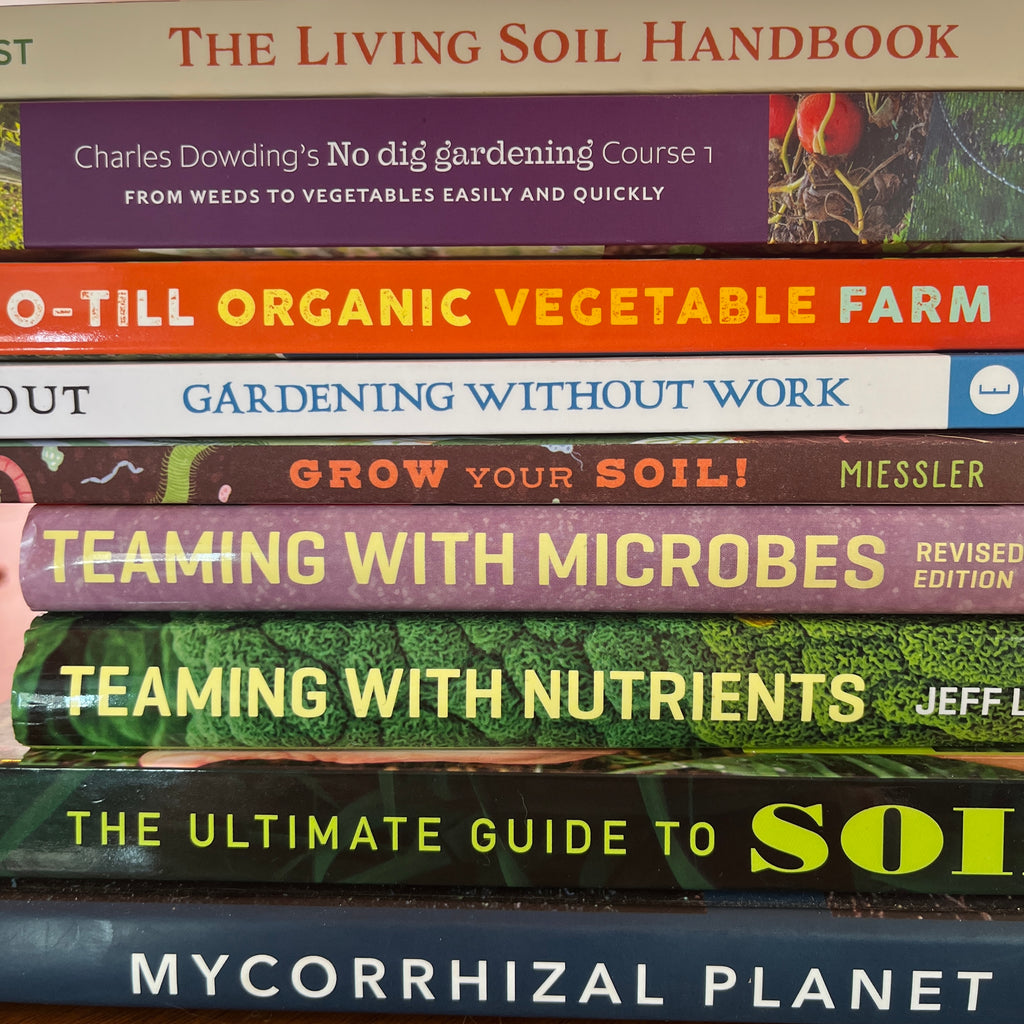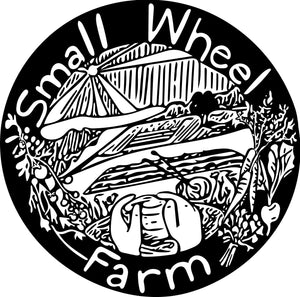Always Growing, Always Learning
By Rebecca Gramdorf

When we named our farm Small Wheel Farm, we were thinking of our aspirations and goals, and reminding ourselves how nature works and how we should treat the land. In nature, natural materials cycle seamlessly through the environment—growing, dying, decaying in place, feeding the life around it, and creating living soil from which new plants grow and begin the cycle again. As farmers we meddle with this natural system in ways that can benefit it, but often times do the opposite. From the beginning I have been conscious of this and have strived to do my best and work toward systems that mimic natural cycles and close the soil food web.
We are entering our sixth year of farming, and are making it a conscious priority this season to revisit our goals and evaluate what we can do better. This has brought us back to our roots as gardeners and what initially inspired us to begin this adventure as farmers--to grow delicious food, but also to do right by the land. Because I'm a bit of a nerd (and there is still lots of snow on the ground) I have turned to books as a way to prepare for the season and the improvements we hope to make.
This season's farm reading has focused on books about composting, mulching and no till agriculture. Through this reading, I am developing strategies to better utilize our vegetative waste (make compost for use on the farm) and ways to further reduce our tillage and increase vegetative cover (so that plants are always growing and feeding the soil).
We are proud of the success we have had in the last few years and stand by our growing practices. At the same time, however, we acknowledge we don't know everything and are challenging ourselves to do better. I sometimes focus too much on our farm products at the expense of looking at the bigger picture--the health of the farm as an ecosystem. At this time we're both celebrating our successes as a farm, and looking for areas of improvement.
Celebrate our successes:
- We have grown quality vegetables without the use of pesticides or chemical fertilizers for five years.
- We have maintained and improved our soil through soil tests and application of slow release rock minerals and compost.
- We avoid single use plastic on the farm, and use landscape fabric and tarps sparingly on the farm—and only where it helps us avoid tillage.
- We use small equipment that tills shallowly and doesn’t invert the soil.
- We intercrop and double crop many of our beds—meaning the soil is filled with living roots that promote biological activity in the soil.
Areas of growth:
- We want to return spent plant matter to the soil by properly composting finished crops, weeds, and food waste.
- We should better protect and feed soil biology by mulching, reducing time between crops, and using cover crops (therefore keeping the soil planted as much as possible).
- We can still reduce tillage frequency and depth.
- Planting habitat for beneficial insects and otherwise increasing diversity on the farm needs to be a priority.
- Generally, we need renewed focus on improving soil biology over mineral content—i.e. chemistry.
Do you have any gardening goals? What are you doing to better put your ideals into practice? I’d love to hear about it!
Farmer Rebecca
